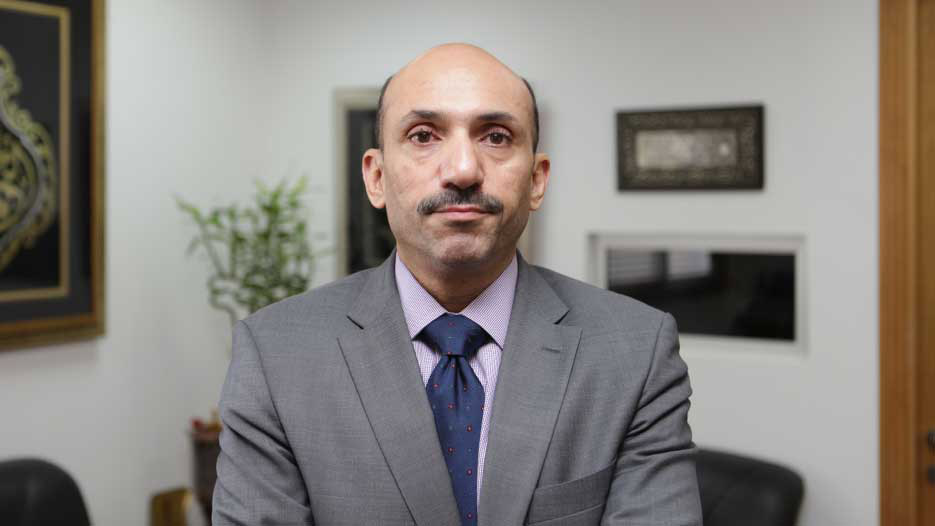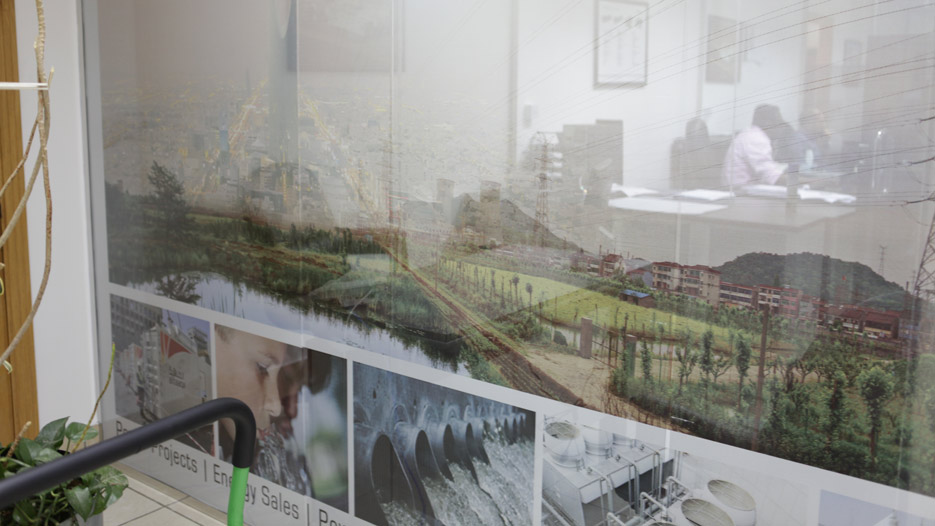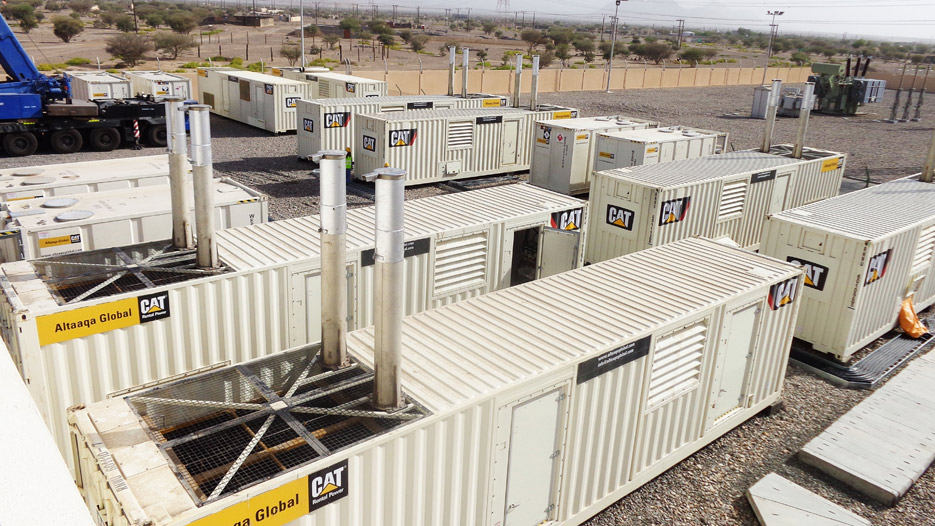Power Sector in Saudi Arabia Growing by 7.5% per Annum
The power sector is growing rapidly, at the rate of 7.5% per annum, which is not easy to manage. Today, any power plant, that is just developing, will require 2 to 5 years for it to be ready for production. 50% of the population today is under the age of 20.
Interview with Emad K. Mukhalalaty, Managing Director of Altaaqa

Please tell us about the energy sector, more importantly the power sector. Right now, Saudi Arabia is of special interest when compared to the Western countries. It is a growing economy. There is a lot of buildup, but it is not every day that you see compatibility when it comes to power. What are the major challenges that Saudi Arabia is facing, especially in the power sector?
Saudi Arabia is fortunate to have a fast-growing population. However, this growth prompts a massive increase in the infrastructure. One of the basic requirements for any thriving economy is to have sufficient water and power supply. These will help in dealing with this rise in demand for consumption for personal and industrial use.
The power sector is growing rapidly, at the rate of 7.5% per annum, which is not easy to manage. Today, any power plant, that is just developing, will require 2 to 5 years for it to be ready for production. 50% of the population today is under the age of 20.
This pressurizes the government to deal with this massive growth. Today, Saudi Electricity and other power providers are working 24/7 to meet the demands. Whereas in other countries the demand might not be more than 2 to 3%, in Saudi on the other hand, we are dealing with a demand close to 7.5%, which is on the higher side.
How much is Saudi Arabia spending on the power projects? Now they are building any new power plants, investing in the grids, upgrading. What do you think they should do differently?
This power candle in Saudi Arabia has been burning on both sides. First of all we are working hard to meet the demands and we also need to change or replace old equipment or power plants. The investment requirements is massive on both sides.
This also makes it a reliability issue during the peak summer months here. In the coming 10 years, we need an investment of nearly 100 billion riyals for them to meet the required demand and to exceed it.
However, what needs to be done today is to ration the use of the existing power plants today. We have to make sure the power is not wasted. We live in a cyclical country, where power is needed during the peak summer months for a certain period during the day. For 5 months in a year, we need a minimum of 5 hours of power a day, from 12 to 5.
This makes it difficult for any power provider to make the business model work. Because the plans need to be utilized. Such a cyclical trend impairs the working of the business model, especially because we are enjoying one of the lowest tariffs in the world today. This leads to a lot of wastage. However, this should encourage the industries to thrive and develop. The government and Saudi Electricity are working very hard to ensure that the industrial sector makes the best use of its energy for developing diversification in the country’s economy.
Saudi Arabia is increasingly using oil for power generation, which of course can be solved. There is also a shortage of gas. So, Saudi Arabia is running out of its own resources. It has now devised a strategy to focus on nuclear and solar energies. Where do you think Saudi Arabia should go from here?
All of the above are needed. Not only Saudi Arabia, but the world can also never do without fossil fuels. But we should really make the best use of solar energy. We are in a country with 365 sunny days a year. We really should diversify and invest massively in the solar industry. This industry is getting cheaper by the day. It is a well-known fact that since 2009 the solar cost per amp has gone down by 40%. This is a massive reduction. That said, it has to be competitive with the prevailing rates, because the initial costs are high. The incentive for using solar in Saudi Arabia, unless we think about the future, the replacement cost of the fuel and the actual cost of fuel used in the international market is not encouraging for the industry to develop. I know that ECRA, the electricity regulator in Saudi Arabia, is trying very hard with Saudi Aramco and Saudi Electricity to develop the regulation needed to wheeling tariffs for subsidies for this industry to develop. But a minor change in the local tariffs will massively help in the development of solar energy. It will be a big wave. It will even be feasible for starting manufacture here at economical prices.
We know that power in general in Saudi Arabia is a lucrative sector, with high margins and very good investment opportunities. How do you structure your strategy vis-a-vis challenges and opportunities?
As Altaaqa has invested heavily in the energy generation sector, our approach to the market is to meet the dire need to bridge the gap between demand and supply. We are not in a position to compete. This is not why we brought this company to the market. It is basically to meet the need for the economy to continue the wheel for the investors to get power as and when they need it until the main connection to the grid materializes. We would like to become one of alternatives to the distribution channel of power. If Saudi Electricity is the main power provider, that is a fantastic approach. If we are able to sell our excess power to the grid, this will be the ultimate growth opportunity and potential and it will certainly help even other investors to help turn this sector into a more feasible growth opportunity. The margins in this industry are not high enough. However, with a small increase in the prevailing tariff, we can see this industry grow and alternative energy solutions will find their grip in the Saudi market.

You have done a lot of innovations in your company. You are trying to cater to the sprawling cities. Tell us about these services.
A little over a year ago, we embarked upon a new service called District Utility Services. Because of their urbanization planning, Saudi Arabia is planning to develop new cities outside the main territories, where young Saudis can find new jobs and stay within their region and closer to their families. This will create a big employment opportunity for young Saudis. The government is mindful of this. However, these new cities are disconnected; they are rural and away from the regular municipal services like power, water and waste water treatment. We have recognized this opportunity and developed a concept with components that meet the basic needs of cities, such as power – temporary or long term – waste water treatment, water and cooling services as well. We are making major cooling investments in the districts.
These cities are providing amenities that normal cities don’t have. The main infrastructure of the cities can accommodate for all the underground work to build the infrastructure required for district cooling to be delivered to each building or cluster of buildings. The beauty of these cities is that they have a cluster of buildings right next to each other. You are easily able to provide cooling or chilled water supply for the air handling units to cool the place rather than using the conventional packaged units, which are 30% more expensive in terms of power utilization. This way, by using the heat from power generation in the cooling system, we charge the lowest cost per ton of cooling and provide the lowest tariff. So, we can meet the ultimate efficiency in tri-generation cold generation.
Is this service/innovation welcomed by the market or are you still struggling to find a footing in the market? Are the people realizing its potential?
It comes with the territory. The markets are developing. Skepticism exists, because it hasn’t been done before. But the end-users and the developers have certainly been appreciating the added value. Because it solves the immediate problem. Imagine you have a city, banks, hospitals, supermarkets, schools, malls, hotels. Imagine the infrastructure is built and you don’t have power supply, pure water, drainage, recycling solution to produce energy from waste. A lot of these solutions today are being put on the table of executives, where decision-making really takes place.
Yes, it will cost a little more to develop, but it is certainly the best way towards sustainability in the future. Yes, it is challenging, but we are getting a lot positive feedback from businessmen in Saudi Arabia and they are really interested in seeing how it would work. We have to prove ourselves to them. I believe in flagship projects. As soon as we get our first opportunity and provide these services to one single city, a lot of other cities will want similar services. By this, I mean, the small cities that are being developed. Whether it is the King Abdullah Economic City or Jeddah Economic Company or Prince Sultan or Gesan – there are so many developments in Saudi Arabia that indicate the trend and we have to cater to this.
Are your services already operational? Have you already started any key projects?
It is not operational. Yes, we have all the components required for utility services. The components are energy, power, water, waste, recycling, customer service and billing. It is the whole cycle. But we have managed to supply energy to many cities and malls and to the utility services itself. Every year, we supply more than 200 megawatt of energy to Saudi Electricity, universities etc. Right now, we are trying to align ourselves with the right technology and strategic partners. So that we have the best solution in water purification, waste using the latest technology in these fields in these cities. But the biggest and most rewarding yield will come if we couple all these services together to produce the lowest cost per cubic meter of water or kilowatt hour.
What are your business development plans and goals for 2015/16 and 2017?
We have ambitious goals that sometimes challenge the timeframe that we are in and the regulations that are available. However, our main objective in 2015 is to align ourselves with the right business partners in their field of technology that will help us provide cities and state-of-the-art solutions to smart city development, from smart grid to micro gridding.
We want to look into integrating solar with diesel power, with wind if the area has a steady wind energy to help us develop this sector and how we can transfer the heat from diesel generators into the coolers, which will reduce the cost and energy utilized by 30%. This is our main goal in 2015. We would like to see this cycle work together.
Please summarize the company’s history, its major milestones that contributed to its success.
Altaaqa Alternative Solutions was established in 2006 with the objective of meeting the dire need of water and power in Saudi Arabia. We are a Zahid Group Company. The Group have always been first in becoming a paperless company, adopting the latest technologies. In the market, they are well known for their sustainability, views, core values, forward thinking and vision.
We have invested close to 2.5 billion Riyals on fleet capacity to meet market demand and to sustain a steady growth rate.
However, on seeing the changing market, we have started adapting accordingly. Since 3 years we have been looking into more renewable energies and sustainable energy solutions and we have been working very hard with the board in identifying companies that are more qualified technologically in providing the lowest cost per kilowatt hour. This is our goal for the future.

Please tell us a bit more about yourself. How did you contribute to the Group?
I think we all need a catalyst to succeed. You can’t clap with just one hand. It is team work. Luckily, I stand on a strong platform. The market is helping. The Saudi economy is one of the best in the region and GCC. Therefore all these elements have contributed. Hard work and dedication, smart thinking and diversification is the key to success. You reinvent yourself all the time by continually improving yourself, reading, meeting fantastic energy technologists. All these help a person in developing his abilities.
Can you give us a brief about the Group itself? What is their current positioning in the market? Is the Zahid Group one of the leading groups?
Zahid Group is a well-known family in Saudi Arabia. It reminds me of a story. When we had the agency for Hummers, SUVs for civilian use, we started driving around the deserted areas. You have to cross it in summer to get the most of it. We used to meet Bedouins, who wanted to know who we were and where we were from. We would tell them, “we are from Zahid”.
They would say, “good people.” We don’t know how they knew the name of the company and the family. We have been in the trading business for the past 100 years. We have been the Caterpillar agents for close to 67 years. We have amazing partners and agencies that have stood firmly against the tides of time. Today, the Group has been diversified into residential, insurance, travel agencies, equipment supplies, industries, investment in oil and gas, oil mixing plants etc.. It has evolved over the years and made massive investments.
From all the family-owned businesses, I would say that Zahid comes as one of the leading top names in Saudi Arabia. As a company, we won the award for Best Working Environment four years ago. This also indicative of our massive investment in the internal systems. Today, we have started to adopt the latest ERP solutions to move on to the next 20 years of the latest enterprise solutions that will integrate all your business legs and channels and put everything at your fingertips. So, at any point of time, if we simply have to view the desktops on our screens to gauge how the company is progressing.